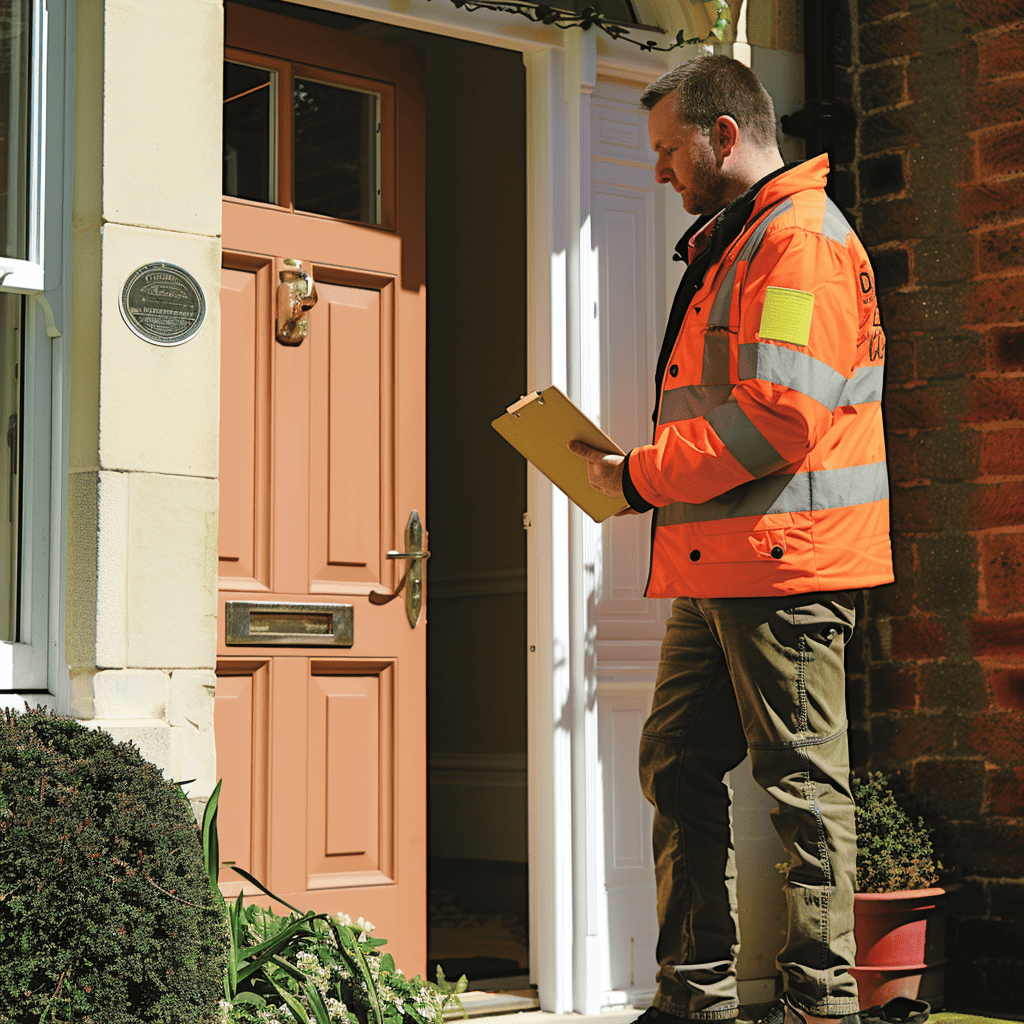Surveying a home is pivotal in buying or selling, offering invaluable insights into a Cambridge home's condition and potential issues. This practice is not just advisable in the UK but is often crucial, given the distinct property landscape and legal considerations. From identifying structural concerns to navigating legal complexities, this guide explores the paramount importance of home surveys. Gain a comprehensive understanding of why a survey is a non-negotiable aspect of any property transaction in the UK.
What is a Home Survey?
A home survey is a comprehensive examination conducted by a qualified surveyor to assess the condition of a property. Its purpose is to provide a detailed analysis of various aspects, including structural integrity, potential defects, and legal considerations.
The survey aims to uncover hidden issues that may not be apparent during a standard property viewing, allowing buyers and sellers to make informed decisions. A home survey acts as a safeguard, clearly understanding a property's condition and helping parties involved in a transaction mitigate risks, negotiate effectively, and ensure a smoother real estate process.
Types of Home Surveys in the UK
In the UK, several home surveys serve specific purposes to cater to varying property needs. The three primary types are:
- RICS Condition Report: This survey provides a basic overview of a property's condition, highlighting any significant issues that might affect its value. It is suitable for newer homes or those in good condition, offering a cost-effective option for buyers who want a general assessment without delving into extensive details.
- RICS HomeBuyer Report: The RICS HomeBuyer Report is a more comprehensive survey suitable for properties in a reasonable condition. It includes an in-depth interior and exterior inspection, focusing on potential problems such as dampness, subsidence, and other common issues. This type of survey helps buyers make informed decisions and negotiate effectively based on the property's condition.
- RICS Building Survey: Offering the most detailed analysis, the RICS Building Survey is ideal for older or unconventional properties. It covers all aspects of a building's structure and condition, thoroughly examining defects and necessary repairs. This survey is recommended for properties undergoing significant renovations or those with a complex history, ensuring buyers are well-informed about any significant issues.
Benefits of Conducting a Home Survey
Conducting a home survey in the UK offers a range of benefits, empowering buyers and sellers alike to make informed decisions. These advantages include:
- Identification of Potential Issues: Home surveys help uncover hidden problems such as structural issues, dampness, and pest infestations. Identifying these issues early allows for informed decision-making and potential negotiation on the property's price.
- Legal Considerations: Surveys can reveal legal concerns like boundary disputes or non-compliance with building regulations. Understanding these issues beforehand prevents legal complications in the future and ensures a smoother property transaction.
- Negotiation Power: With survey findings, buyers have more substantial negotiation leverage. They can use the survey report to renegotiate the property price or request necessary repairs before finalising the deal, saving potential post-purchase costs.
- Financial Protection: Surveys can prevent buyers from investing in a property with hidden defects that could lead to significant financial burdens. Sellers benefit by showcasing their property's condition, potentially attracting more confident buyers.
- Risk Mitigation: Surveys help mitigate risks associated with unforeseen maintenance or repair costs. Buyers and sellers can plan for necessary improvements and factor them into their budget or pricing strategy by understanding a property's condition.
- Insurance Eligibility: Some insurance policies may require a home survey to determine the property's risk factors. A survey can provide essential information for securing appropriate insurance coverage.
Legal Implications and Mortgage Requirements
Understanding the legal implications and mortgage requirements associated with home surveys is crucial for a seamless property transaction in the UK. Mortgage lenders often require a survey to assess the property's condition and value, influencing their lending decisions. Legal implications may arise if surveys reveal boundary disputes or non-compliance with building regulations.
Buyers armed with survey findings can negotiate terms and potentially avoid legal complications. Moreover, fulfilling mortgage requirements by obtaining an approved survey contributes to a smoother approval process. Both buyers and sellers benefit from comprehending these aspects, ensuring transparency, compliance, and a secure real estate transaction.
Process of Conducting a Home Survey
Conducting a home survey in the UK involves several crucial steps, ensuring a thorough assessment of the property's condition. Here are the key stages:
- Selecting a Qualified Surveyor: Choose a qualified and reputable surveyor registered with the Royal Institution of Chartered Surveyors (RICS). RICS-registered surveyors adhere to professional standards and bring expertise to the survey process.
- Initial Consultation and Agreement: Contact the chosen surveyor for an initial consultation. Discuss the type of survey required based on the property's age, condition, and specific needs. Agree on the survey scope, fees, and timeline for completion.
- Access Arrangements: Coordinate with the current homeowner or seller to ensure the surveyor has unrestricted access to all areas of the property. This includes both the interior and exterior spaces. Adequate access is crucial for a comprehensive assessment.
- On-Site Inspection: The surveyor conducts a thorough on-site inspection of the property, examining its structure, condition, potential issues, and potential dampness, roof, plumbing, and electrical systems.
- Documenting Findings in a Report: After the on-site inspection, the surveyor creates a comprehensive report detailing the property's condition, identified issues, and recommendations for further actions, repairs, or investigations.
- Reviewing and Discussing Results: The surveyor shares the report with the client, ensuring they understand the property's condition, address any concerns, and provide a thorough review of the findings.
- Decision-Making and Further Action: The survey results aid clients in making informed decisions about property purchases, negotiation, repairs, and further investigations, making the report a valuable tool in real estate transactions.
Selecting a Surveyor in the UK
Selecting a surveyor in the UK is crucial in ensuring a comprehensive and reliable property assessment. Here are considerations to guide your selection:
- RICS Accreditation: Choose a surveyor accredited by the Royal Institution of Chartered Surveyors (RICS). RICS accreditation ensures that the surveyor adheres to professional standards and possesses the necessary expertise to conduct thorough property assessments.
- Experience and Specialisation: Consider the surveyor's experience, especially about the type of property you're dealing with. Some surveyors specialise in specific property types or issues, such as historic buildings or structural concerns, ensuring a tailored and expert evaluation.
- Local Knowledge: Opt for a surveyor with local knowledge and familiarity with the area. Local expertise can provide insights into region-specific issues, geological considerations, and potential challenges relevant to your property.
- Client Reviews and Testimonials: Research client reviews and testimonials to gauge the surveyor's reputation and previous clients' satisfaction. Online platforms, industry directories, or recommendations from friends and family can provide valuable insights into a surveyor's performance.
- Transparent Fees and Services: Inquire about the surveyor's fees and the services included. Transparent communication about costs, the scope of the survey, and any additional charges ensure that you are fully aware of the financial commitment and what to expect from the survey process.
- Insurance and Professional Indemnity: Confirm that the surveyor holds appropriate insurance, including professional indemnity insurance. This coverage protects in case of errors or omissions during the survey process, offering added reassurance to clients.
Costs Associated with Home Surveys in the UK
Understanding the costs associated with home surveys in the UK is crucial for budgeting and making informed decisions in the property transaction process. Here are at least five aspects to consider:
- Surveyor Fees: The primary cost associated with a home survey is the fee charged by the surveyor. The fee can vary depending on the type of survey chosen (e.g., RICS Condition Report, RICS HomeBuyer Report, or RICS Building Survey) and the complexity of the property. It's essential to obtain quotes from different RICS-registered surveyors to compare costs.
- Additional Services: Some surveyors may offer services beyond the standard survey, such as specialised investigations (e.g., asbestos or radon testing) or advice on specific issues. These additional services come with extra costs, and discussing and agreeing on any supplementary fees in advance is essential.
- Travel Expenses: If the property is located a considerable distance from the surveyor's office, there may be additional charges for travel expenses. These costs could include transportation, accommodation, or mileage fees. Clarify with the surveyor whether such charges apply and how they are calculated.
- VAT (Value Added Tax): Surveyor fees are typically subject to VAT, an additional cost. When comparing surveyor quotes, ensure you know the inclusive or exclusive VAT status and factor it into your overall budget.
- Property Size and Complexity: The size and complexity of the property can impact survey costs. More significant properties or those with unique features may require more time and effort for a thorough assessment. Discuss these factors with the surveyor to determine if there are any additional charges based on the specific characteristics of the property.
- Urgency or Timeliness: If you require the survey to be conducted urgently or within a specific timeframe, some surveyors may charge expedited or premium fees. Planning and scheduling the survey well in advance can help avoid such additional costs.
In conclusion, a home survey is an indispensable step in the property transaction process, providing invaluable insights into a property's condition and potential issues. At Redmayne Arnold and Harris, we understand the significance of this process in the UK real estate landscape.
Our qualified surveyors are committed to delivering thorough assessments, empowering you with the information needed for informed decisions. Prioritise the importance of a home survey, and contact us at Redmayne Arnold and Harris via our business phone number to ensure a smooth and secure property transaction. Your peace of mind starts with a comprehensive survey.


